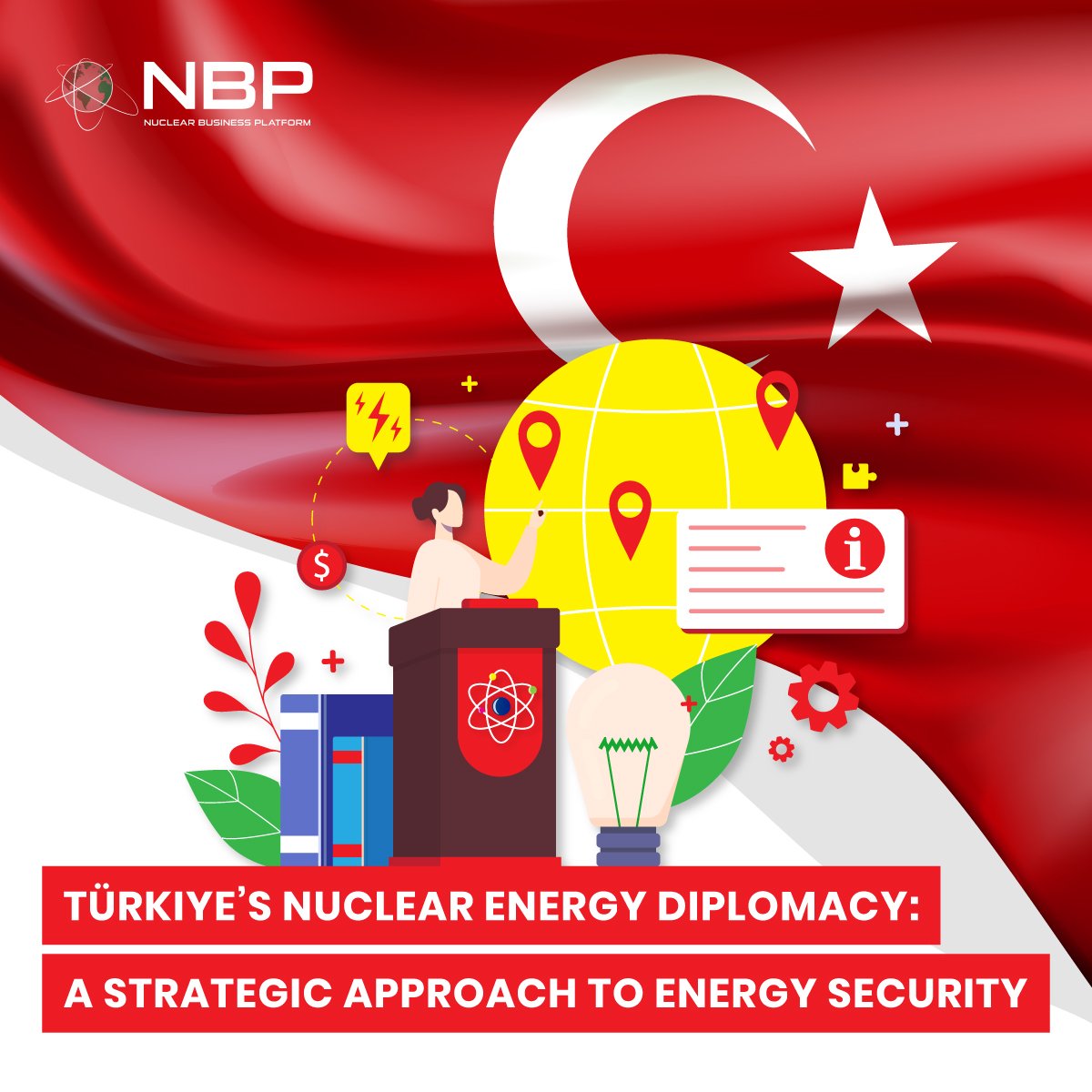Türkiye’s Nuclear Energy Diplomacy: A Strategic Approach to Energy Security
Türkiye’s nuclear energy program is a testament to the country’s strategic approach to energy security and diplomacy. The program, which heavily relies on international cooperation and foreign technology, is a key component of Türkiye’s broader energy diplomacy strategy. This article delves into Turkish nuclear sector's multi-faceted strategy that intertwines technology, diplomacy, regional influence, and economic development.
International Cooperation and Diplomacy
Türkiye’s decision to work with Russia on the Akkuyu Nuclear Power Plant (NPP) project exemplifies the diplomatic implications of choosing supplier countries for nuclear technology. This collaboration not only facilitates the transfer of advanced Russian-designed VVER-1200 reactors but also strengthens Türkiye-Russia relations. The Akkuyu NPP, currently the largest nuclear construction project in the world, is expected to be fully operative by 2028.
The second NPP, Sinop, is under the planning phase with ongoing discussions between Türkiye, Russia, and South Korea. The third NPP, İğneada, likewise is still in the planning stage, and the technology and vendor have not been decided yet. However, discussions are taking place with the People's Republic of China. Additionally, Türkiye is also engaging with the UK and USA to explore the Small Modular Reactor (SMR) technology. During these potential partnerships, Türkiye aims to not only acquire technology but also strengthen its relationships.
Moreover, Economically, Türkiye’s growing economy, large population, military might, active diplomacy, strong state tradition and national identity have made it a decisive regional power capable of taking the initiative and forwarding a proactive foreign policy. The Akkuyu NPP project, with an estimated investment cost of about US$ 20 Billion, signifies Türkiye’s commitment to achieving energy independence.
Regional Influence and Leadership
The development of nuclear energy can significantly enhance Türkiye’s influence in the Middle East and around the world. As the first large nuclear power plant in Türkiye, Akkuyu NPP is expected to generate around 10% of the country’s electricity when completed. This positions Türkiye as a leader in energy production and technology in the region.
Moreover, Türkiye’s pursuit of nuclear energy aligns with its goal of reducing its energy import dependency. The Akkuyu NPP project, signifies Türkiye’s commitment to achieving energy independence.
In addition to direct economic benefits, the Akkuyu NPP project will stimulate job creation and localization program development for Turkish suppliers. It will also lead to the development of nuclear education and bring many other positive effects to the Turkish national economy.
Sharing Expertise and Fostering International Collaboration
Türkiye's nuclear energy program is not just about energy security, but also about fostering international collaboration and sharing expertise. As Türkiye advances in its nuclear energy program, it is well-positioned to share its expertise with newcomer countries, not only in the Middle East but also around the world, especially in Africa and Asia. Newcomer countries in both continents are likely to observe numerous parallels in the Turkish nuclear power program, such as demographic and economic similarities. Moreover, the valuable lessons derived from Turkiye’s experiences could potentially be effectively adapted and implemented in these respective nations. In contrast, the UAE's nuclear power program, owing to the substantial financial resources of the oil-rich nation, has often taken a different route.
Türkiye’s experience with the Akkuyu NPP project, the largest nuclear construction project in the world, provides a wealth of knowledge that can be shared. This includes expertise in areas such as project management, regulatory compliance, human resources development, and safety protocols.
Moreover, Türkiye’s strategic approach to international cooperation and diplomacy in its nuclear program can serve as a model for other countries. Its collaborations with Russia, South Korea, and China demonstrate how nuclear energy projects can strengthen international relations. Türkiye is particularly well-suited to share its expertise due to its strategic location bridging Europe and Asia, its rapidly growing economy, and its commitment to adhering to international nuclear safety standards.
In addition to this, Türkiye has entered into more than 20 conventions, including the Paris Convention on Third Party Liability in the Field of Nuclear Energy in 1960 and the Nuclear Safety Convention in 1994. These conventions demonstrate Türkiye’s commitment to nuclear safety and could serve as a blueprint for other countries looking to develop their own nuclear energy programs.
In conclusion, Türkiye’s nuclear energy diplomacy serves as a strategic approach to achieving energy security. By leveraging international cooperation, enhancing regional influence, and diversifying its energy production, Türkiye is poised to become a significant player in the global nuclear energy landscape. Nuclear energy will not only contribute to growing energy demands in Türkiye but also launch the country into the nuclear power league. It provides clean, stable, reliable, and cost-effective electricity. With its strategic vision, prudent policies, and commitment to safety, Türkiye has demonstrated its potential to serve as an example for other nations seeking to harness the benefits of nuclear energy.
Opportunities in the Turkish nuclear market will be discussed during the Türkiye NBP 2023 conference and exhibition which will take place 6-8 November in Antalya. This industry meeting is hosted by Nükleer Teknik Destek Anonim Şirketi (NÜTED A.Ş.). An exclusive technical site-visit to the Akkuyu nuclear plant site is also scheduled as part of Türkiye NBP 2023
For more information and to download the detailed meeting agenda visit - www.nuclearbusiness-platform.com/turkiye/tnbp-2023



